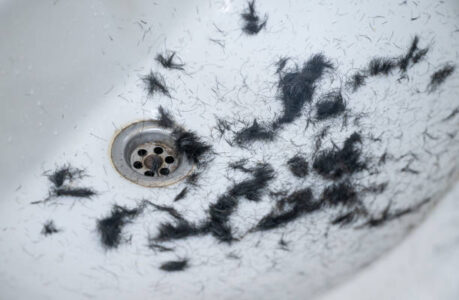A blocked bathroom drain is a common household problem that can cause significant inconvenience and even damage if not addressed promptly. Let’s dive into understanding the causes, exploring solutions, and learning how to prevent this issue from happening in the first place.
Importance of a Functional Bathroom Drain
A functional bathroom drain is essential for maintaining hygiene and preventing water damage in your home. When your drain is working correctly, you probably don’t give it much thought. However, a blocked drain can quickly disrupt your daily routine and lead to bigger problems if left unattended.
Common Causes of Blocked Bathroom Drains
Blocked bathroom drains can result from various factors, including hair buildup, soap scum, foreign objects, and mineral deposits. Understanding these causes can help you take preventive measures and address the issue effectively when it arises.
Understanding the Problem
Signs of a Blocked Bathroom Drain
Noticing the early signs of a blocked drain can save you from a lot of hassle. Common indicators include slow draining water, unpleasant odors, gurgling sounds, and water pooling around the drain area.
Immediate Consequences of Ignoring the Problem
Ignoring a blocked drain can lead to water damage, mold growth, and even structural issues in your home. It’s crucial to address the problem as soon as you notice it to avoid these costly repairs.
Common Causes of Blocked Bathroom Drains
Hair Buildup
Hair is one of the most common culprits of bathroom drain blockages. It easily gets trapped in the drain and combines with soap and other debris to form stubborn clogs.
Soap Scum
Soap scum, a byproduct of soap and water, can build up over time and cause blockages. This is especially common in showers and sinks where soap is used frequently.
Foreign Objects
Accidentally dropping items like jewelry, toothpaste caps, or small toys down the drain can lead to blockages. These objects can obstruct water flow and cause significant issues.
Mineral Buildup
Hard water, which contains high levels of minerals, can leave deposits in your pipes over time. These mineral buildups can restrict water flow and contribute to blockages.
Pipe Damage
Cracked or damaged pipes can also cause blockages. Tree roots, ground movement, or old, corroded pipes can lead to structural damage and obstruct the drain.
DIY Solutions for Unblocking Bathroom Drains
Using a Plunger
A plunger is a simple yet effective tool for unblocking drains. Create a seal around the drain and plunge vigorously to dislodge the blockage.
Baking Soda and Vinegar Method
This natural remedy can help break down clogs. Pour a cup of baking soda followed by a cup of vinegar down the drain. Let it fizz and sit for about 30 minutes, then flush with hot water.
Boiling Water
Boiling water can help dissolve soap scum and other debris. Pour boiling water down the drain in stages to avoid damaging the pipes.
Chemical Drain Cleaners
Chemical drain cleaners can be effective but should be used sparingly due to their harsh nature. Follow the instructions carefully to avoid damaging your pipes.
Manual Removal with a Drain Snake
A drain snake, also known as a plumber’s auger, can physically remove blockages. Insert the snake into the drain and twist to catch and pull out the clog.
Preventative Measures
Regular Cleaning
Regularly cleaning your bathroom drain can prevent blockages. Use a drain cleaner or natural remedies like baking soda and vinegar periodically.
Installing Drain Covers
Drain covers can catch hair and other debris before they enter the drain, making it easier to prevent blockages.
Proper Disposal of Waste
Avoid disposing of grease, food particles, and other waste down the drain. Dispose of them properly in the trash to prevent clogs.
Routine Maintenance Checks
Schedule routine maintenance checks with a plumber to identify and address potential issues before they become major problems.
When to Call a Professional
Persistent Blockages
If you’ve tried DIY methods and the blockage persists, it’s time to call a professional plumber. They have the tools and expertise to address more severe issues.
Strange Noises from Pipes
Unusual noises like gurgling or bubbling from your pipes can indicate a serious blockage or damage. A professional can diagnose and fix the problem.
Slow Draining Despite DIY Efforts
If your drain is still slow after trying various DIY solutions, a professional can help identify and remove the blockage effectively.
Professional Solutions for Severe Blockages
Hydro Jetting
Hydro jetting uses high-pressure water to clear blockages and clean the pipes. This method is effective for removing stubborn clogs and buildup.
Pipe Inspection and Replacement
A professional plumber can inspect your pipes using cameras to identify damage or blockages. In severe cases, pipe replacement may be necessary.
Advanced Drain Cleaning Techniques
Professionals have access to advanced tools and techniques, such as motorized drain snakes and rooter machines, to tackle severe blockages.
The Cost of Professional Services
Average Cost of Drain Cleaning Services
The cost of professional drain cleaning services varies depending on the severity of the blockage and the method used. On average, you can expect to pay between $100 and $300.
Factors Influencing the Cost
Factors such as the location of the blockage, the type of pipes, and the complexity of the problem can influence the cost of professional services.
Environmental Considerations
Eco-Friendly Drain Cleaning Solutions
Consider using eco-friendly drain cleaning solutions to minimize environmental impact. Natural remedies like baking soda and vinegar are effective and safe for the environment.
Reducing Water Usage
Being mindful of water usage can help prevent blockages. Avoid letting water run unnecessarily and fix leaks promptly.
Conclusion!!
Addressing a blocked bathroom drain promptly is crucial to maintaining a functional and hygienic bathroom. By understanding the causes, applying DIY solutions, and knowing when to call a professional, you can keep your drains clear and avoid costly repairs.
FAQs
How often should I clean my bathroom drain?
It’s recommended to clean your bathroom drain at least once a month to prevent buildup and blockages.
What are the safest methods for unblocking a drain?
Natural remedies like baking soda and vinegar, as well as using a plunger, are safe and effective methods for unblocking a drain.
Can blocked drains cause damage to my home?
Yes, blocked drains can lead to water damage, mold growth, and even structural issues if not addressed promptly.
How can I prevent hair from clogging my drain?
Installing a drain cover can help catch hair and prevent it from entering the drain. Regularly cleaning the cover will also help maintain clear drains.
When is it necessary to replace pipes?
Pipes may need to be replaced if they are severely damaged, corroded, or if blockages persist despite repeated cleaning efforts.




